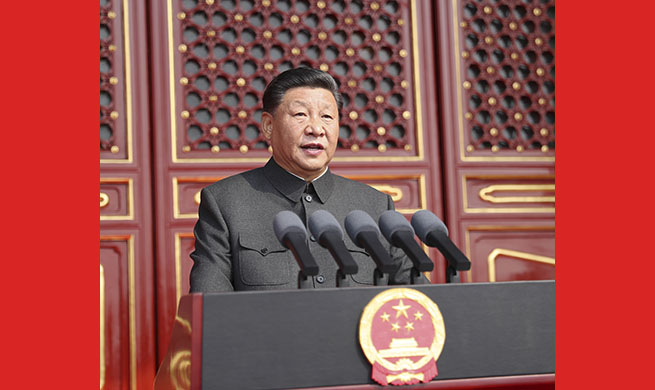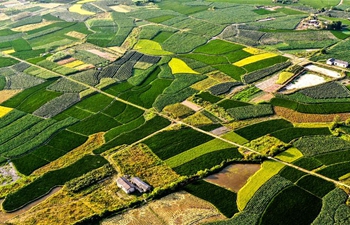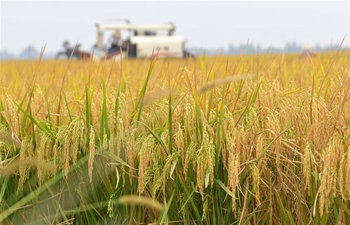by Olatunji Saliu
ABUJA, Oct. 3 (Xinhua) -- At least 43 people have been killed in a yellow fever outbreak since July, following the confirmation by health authorities that another patient died in the country's northeastern state of Bauchi on Wednesday.
There have been cases of yellow fever in all parts of Nigeria, but local officials have recorded deaths in the southeastern state of Ebonyi and the northeastern state of Bauchi.
The latest death was recorded in Alkaleri, a town in Bauchi, which had earlier recorded some deaths, said Rilwanu Mohammed, head of the State Primary Healthcare Development Agency.
The additional death brought to 17 deaths out of the 20 yellow fever cases recently recorded in 11 local government areas of the state, Mohammed said.
The outbreak of yellow fever in Bauchi was first recorded occurred on August 29 in Alkaleri, before spreading to other parts of the state.
Last Thursday, the death toll of the yellow fever outbreak in Ebonyi rose to 26, according to the World Health Organization (WHO) which confirmed the outbreak had spread up to nine local government areas over the past two months.
Local health officials had first recorded an outbreak of yellow fever in Ebonyi since July 15. Only one rural community was earlier affected by the disease, with 16 deaths as of the time.
As of August 30, the southern state had recorded a total of 84 suspected yellow fever cases, with a case fatality ratio of 31 percent, the global health body said.
The yellow fever is mostly caused by a type of mosquitoes called "Aedes Aepyti" found in the tropics and sub-tropics. It is transmitted from person to person through mosquitoes, although there are also forest monkeys that transmit it.
Local experts said the disease often manifests fever, typhoid, among other symptoms and if not detected on time, will affect the blood and the victims will experience renal failure and possible coma.
There is no specific treatment, although the disease is preventable using a single dose of yellow fever vaccine, which provides immunity for life.
WHO said the assessment conducted by rapid response teams and national agencies found low vaccination coverage and poor routine immunization documentation.
"Though Nigeria introduced routine vaccination for yellow fever into the immunization schedule in 2004, most adults remain susceptible and overall population immunity is low," the health organization said.
Between January and July, over 2,000 suspected yellow fever cases were reported in 506 local government areas from all 36 states of Nigeria, including the Federal Capital Territory, according to official data by WHO.













